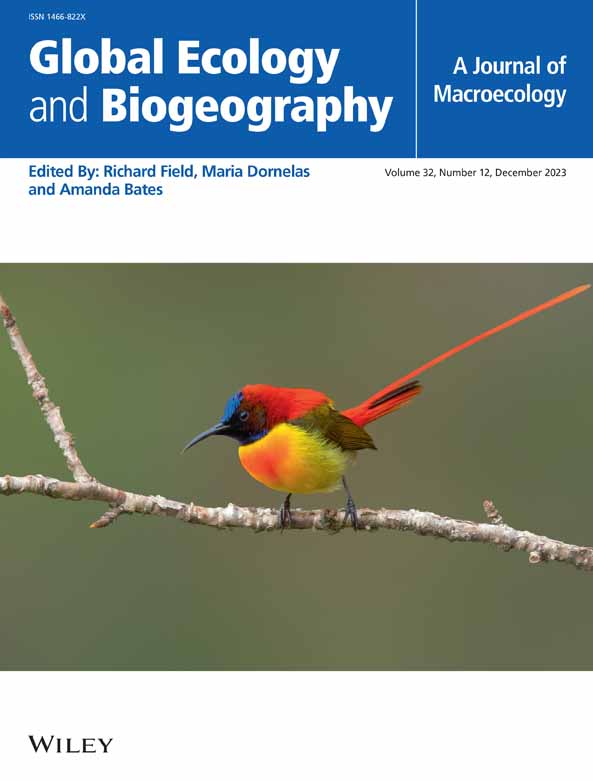Ecological Specialisation of Reef Fishes Peaks in Global Biodiversity Hotspots
Abstract
Aim
The role of ecological specialisation in shaping biogeographic and evolutionary patterns remains unresolved. To date, few studies have quantitatively examined consumer niche breadth at a global scale. We describe global biogeographic and diversification patterns of specialisation, measured using trophic and thermal niches, for a highly diverse assemblage of consumers: reef fishes. First, we investigated the confluence of specialisation with global biogeographic patterns in species richness and reef area. Then, we tested whether these patterns could be explained by differences in diversification rates and geographic ranges.
Location
Tropical reefs across the globe.
Time Period
Present.
Major Taxa Studied
Reef fishes.
Methods
To estimate trophic specialisation, we compiled a comprehensive dataset on reef fish trophic interactions from published gut content analyses, including dietary information for ~5000 individuals across 387 fish species. We used the geographic range of species and global temperature data to estimate thermal specialisation of reef fishes. We used distributional data and Bayesian Structural Equation Modelling to test for the correlation between biogeographic variables, species richness, and the prevalence of trophic or thermal specialisation in reef fish assemblages. Moreover, we used linear models to test for a correlation between reef fish diversification rates, geographic range, and their degree of trophic and thermal specialisation.
Results
Our analysis suggests that species richness is positively associated with trophic specialisation in reef fishes, with isolated and species-depauperate communities supporting assemblages dominated by trophic and thermal generalists. We found no effect of trophic and thermal specialisation on diversification rates and geographic range at the species level.
Main Conclusions
Our findings indicate that specialisation is favoured in large, biodiversity-rich regions, but specialists might show lower capacity for colonisation, with lower representation on smaller, isolated reefs. These results contribute to our understanding of the dynamics shaping fish biogeography on coral reefs.

 求助内容:
求助内容: 应助结果提醒方式:
应助结果提醒方式:


